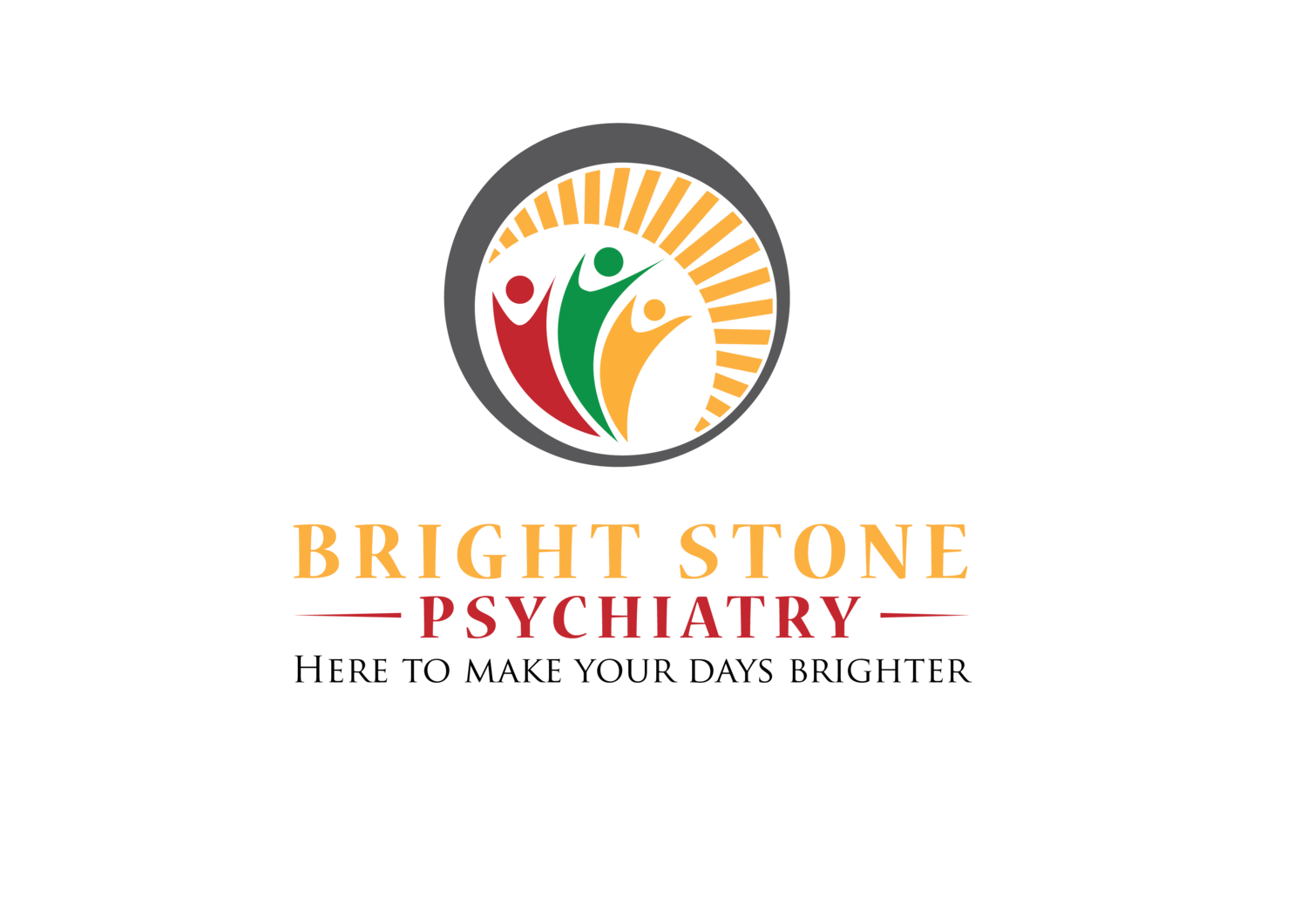Understanding Mental Health: How to Recognize Early Signs of Depression
Understanding Depression
Depression is a common yet serious mental health condition that affects millions of people worldwide. It can significantly impact daily life, making even the simplest tasks feel overwhelming. Despite its prevalence, depression often goes unrecognized, and many individuals struggle in silence. The sooner depression is recognized and treated, the better the chances of recovery and maintaining a healthy, balanced life. In this blog, we’ll explore the common symptoms of depression, early warning signs, and how to seek help from a mental health professional like Brightstone Psychiatry.
What is Depression?
Depression, or major depressive disorder, is more than just feeling sad or going through a rough patch. It is a chronic condition that can affect your mood, thinking, behavior, and physical well-being. Depression can lead to a range of symptoms that can interfere with your ability to function in daily life. While everyone experiences low moods at times, when those feelings persist and interfere with your ability to carry out day-to-day activities, it may be time to consider seeking help.
Common Symptoms of Depression
Recognizing the symptoms of depression is the first step toward getting help. While depression affects everyone differently, some common signs and symptoms include:
Persistent Sadness or Low Mood
Feeling sad, hopeless, or empty most of the time. This low mood may last for weeks or months, interfering with your ability to enjoy things you once did.
Loss of Interest or Pleasure in Activities
Losing interest in hobbies or activities that you used to find enjoyable or fulfilling. This is known as anhedonia and is a hallmark symptom of depression.
Changes in Sleep Patterns
Either sleeping too much or struggling with insomnia. People with depression may find it hard to get out of bed or may feel constantly tired, no matter how much sleep they get.
Fatigue or Lack of Energy
Experiencing persistent tiredness or lack of energy, even after rest. Everyday tasks can feel overwhelming, and you may struggle to muster the energy to get through the day.
Difficulty Concentrating
Depression can make it difficult to concentrate, focus, or make decisions. This can affect your performance at work or school and your ability to manage everyday tasks.
Feelings of Worthlessness or Guilt
Experiencing excessive guilt, self-blame, or feelings of worthlessness. You may feel as though you are not good enough or that you have failed, even when there is no reason to believe this.
Changes in Appetite or Weight
Significant weight loss or weight gain, often due to changes in appetite. Some individuals may overeat in an attempt to cope, while others may lose their appetite altogether.
Physical Symptoms
Depression can manifest as physical symptoms such as headaches, stomachaches, and muscle pain, without an identifiable medical cause.
Thoughts of Death or Suicide
One of the most severe symptoms of depression is thinking about death, self-harm, or suicide. If you or someone you know is experiencing these thoughts, it is crucial to seek immediate help.
Early Warning Signs of Depression
Recognizing early signs of depression can be challenging, especially because many of the symptoms can be mistaken for normal emotional fluctuations. However, some early warning signs that you may be developing depression include:
Increased irritability: Feeling more easily frustrated, angry, or irritated, even over small matters.
Withdrawing from loved ones: Isolating yourself from family, friends, or activities you once enjoyed.
Difficulty finding joy in life: Experiencing a lack of enthusiasm or passion for things that once brought happiness.
Decreased productivity: Not being able to focus at work, school, or in daily tasks, leading to feelings of overwhelm.
Physical signs of stress: Experiencing physical tension, aches, or a sense of restlessness.
If you or someone you know is showing these early warning signs, it’s important not to ignore them. Taking action early can help prevent the condition from worsening and improve the chances of successful treatment.
How to Seek Help from a Mental Health Professional
If you or a loved one is experiencing symptoms of depression, it is important to seek help from a mental health professional as soon as possible. At Brightstone Psychiatry, we offer compassionate, personalized care to help individuals understand and manage their mental health.
Here’s how to get started:
Reach Out to a Professional
Contacting a mental health professional is the first step toward getting support. At Brightstone Psychiatry, we offer a comprehensive approach to treating depression and other mental health conditions. We specialize in a range of therapies and treatments tailored to each individual’s needs.Schedule a Consultation
When you contact us, you will be scheduled for a consultation where we will assess your mental health and discuss your symptoms. Based on the evaluation, we will develop a personalized treatment plan that may include therapy, medication, or other interventions.Therapy and Counseling
Therapy is one of the most effective treatments for depression. At Brightstone Psychiatry, we offer various therapeutic modalities, including Cognitive Behavioral Therapy (CBT), Dialectical Behavior Therapy (DBT), and more, depending on your needs.Medication Management
For some individuals, antidepressant medication can be an essential part of their treatment plan. Our team at Brightstone Psychiatry can guide you through the medication process, ensuring that you find the right medication and dosage to improve your symptoms.Ongoing Support
Depression is not something you have to face alone. Our team is here to provide ongoing support and follow-up care to ensure that you are progressing toward recovery.
Don't Wait – Reach Out Today
If you're struggling with symptoms of depression, don’t wait until they worsen. Help is available, and recovery is possible. Brightstone Psychiatry offers professional care to help you manage your depression and get back to living a fulfilling life.
You can contact us today at 832-378-8282 or email us at Hello@BrightStonePsychiatry.com. Visit our website at www.brightstonepsychiatry.com to learn more about our services and schedule an appointment.
Remember, mental health is just as important as physical health. Taking the first step toward seeking help is the beginning of your journey toward healing and well-being.

